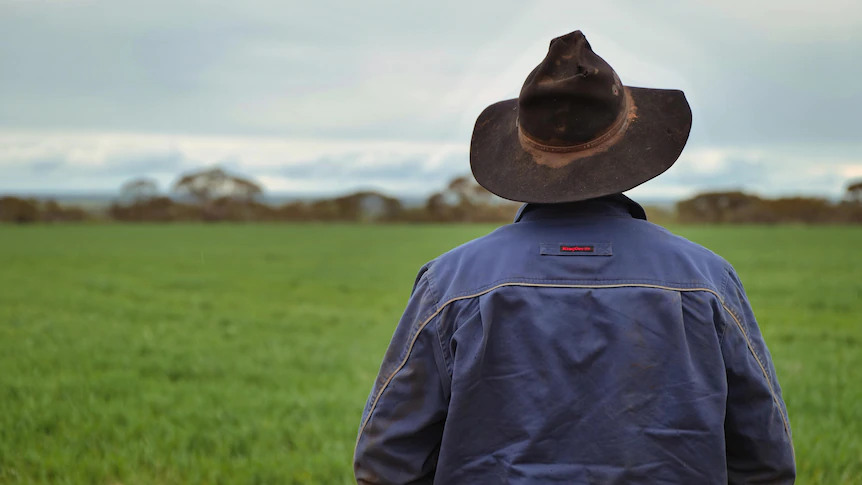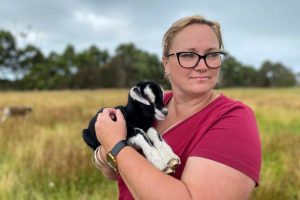
Mental health support services have reported an increase in people reaching out for help as stress increases on farms.
Key points:
- Rural mental health support services are “flat out” as more farmers reach out for help
- It is reported stresses on farm have increased in the past 12 months
- Farmers say political moves are exacerbating long-term mental health issues
Western Australian farmers have seen new challenges added to existing pressures in the past 12 months, according to Wheatbelt Rural Aid counsellor Roger Hitchcock.
He said the concerns included the promised phase-out of live sheep export among other legislation and the rising cost of production.
He said livestock markets were also down compared to last year.
Mr Hitchcock said farming was a highly stressful industry.
“Our services and every other service I speak to are all the same — we’re flat out, and I’ve noticed it in this last year,” he said.
“I’ve heard the other day … the Great Southern is now a suicide hotspot, which is scary.”
Although the number of calls was increasing, he said it was positive to see people reaching out for help.
“It’s great to see so many people with the strength and the realisation that you do need to talk,” Mr Hitchcock said.
Live export stress
Lake Grace farmer Shane Carruthers said he had noticed more people in his community struggling mentally.
He said mental health had been a long-term issue in regional areas, but political moves such as the planned phase-out of live export and the now revoked Aboriginal Cultural Heritage Act 2021 exacerbated the problem.
“It’s not a good thing and mental health in the community is paramount,” he said.
“I just hope the government sees a bit of common sense and realises what they’re doing to these country communities and the welfare of the people.”
Federal Agriculture Minister Murray Watt said he realised the phase-out of live export trade would put stress on farmers.
“I acknowledge, and I think our entire government acknowledges, that this is a big shift for a lot of people here in Western Australia and they need to be treated with respect and empathy,” he said.
“I understand that this change has caused a lot of hurt for a lot of people.”
He said people were worried about their futures.
“And that’s one of the reasons why, whenever I come here, I make sure that I meet with people to ensure that they’re heard and to be able to keep them updated about our thinking,” Mr Watt said.
There is hope
Mr Hitchcock’s advice to anyone who is struggling right now is to not lose hope and continue to speak out.
“If you feel that hope is gone you need to challenge that thought. Remember what they are, they’re thoughts,” he said.
“There is hope. Reach out, talk to friends, talk to family. Realise that speaking out and talking out and reaching out for help is a strength.
“It takes a lot of courage to pick up the phone and call me as a counsellor, or to call any other great service in in our region.”






















